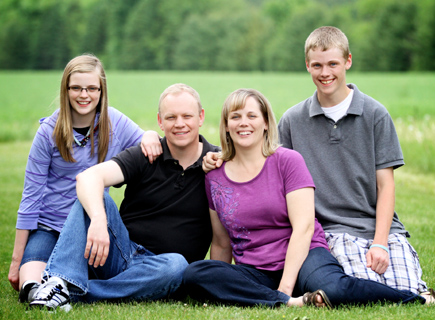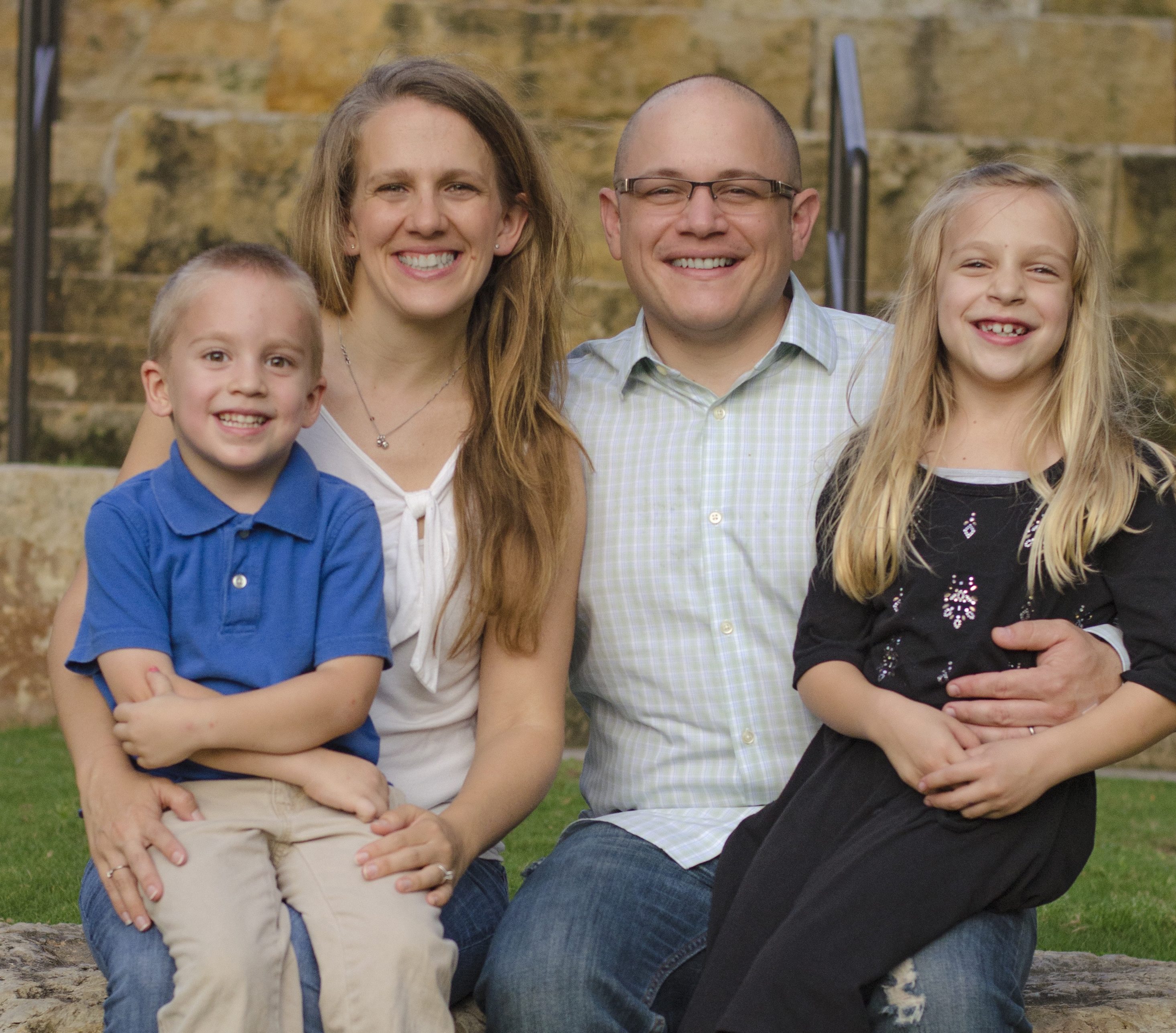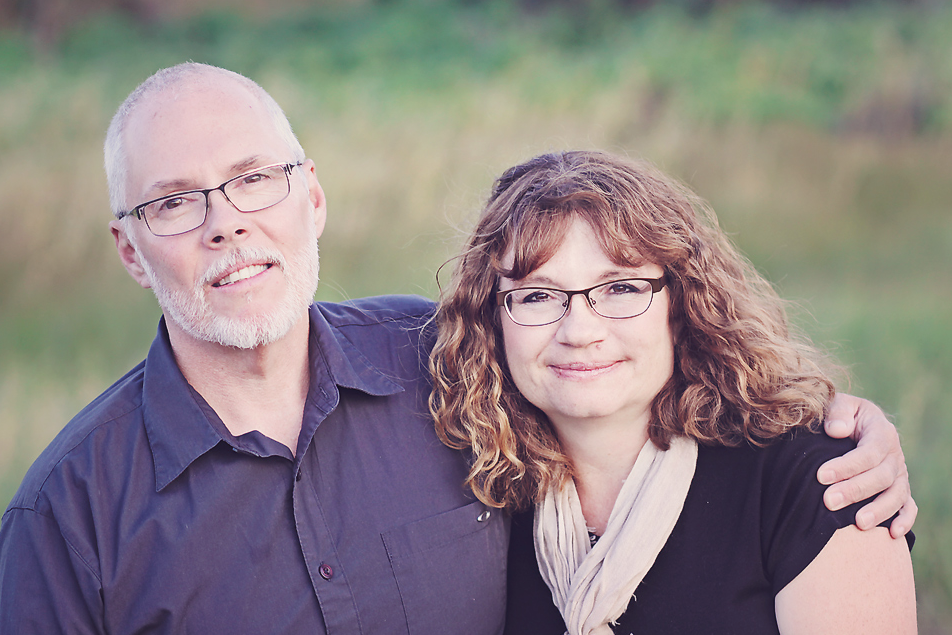
At one time or another, many pastors and church planters hold a second job, often simply to make ends meet. But something we undertake out of necessity can become a really interesting tool in God’s hand to bring his kingdom in the communities in which we live and work. Check out three different Vineyard pastors’ takes on the costs and benefits of being bivocational, and be sure to check out our webinar on the topic.
 Name: Michael Houle
Name: Michael Houle
Location: Chippewa, WI
Are you bivocational now: No. After 11 years of being bi-vocational, I just went full-time as the pastor of my church.
Job: Substitute teacher.
Full time: No.
Benefits of being bi-vocational:
Connection to community. When we moved to Chippewa, we didn’t know anyone. But working in the schools ended up really connecting us with people. Kids would see me and say “hey, that’s my teacher,” and then I would get to know their parents, too. In the past few years, people have almost forgotten that we are not from here. When our church building burned down, the school superintendent offered us the use of the cafeteria and some classrooms for free indefinitely so we would have a place to meet as a church. That was because of being bi-vocational. Working was a necessity financially, but it was also a necessity in terms of getting into the community.
Pastoring the community. Because of my school connections, I get to pastor the community in a way that not a lot of other pastors get to. I get to do a lot of weddings and funerals and baby dedications outside of the church, because people just don’t know anyone else who can do those things. And if something is going on with a colleague, I know I’m the one they’ll call as their pastor, because they don’t go to church. I’ve gotten to do the prayer at an education banquet, and I’ve gotten to pray with the principal when we were dealing with some tragic suicides that happened in the community.
Things to watch out for:
Time. One thing I found was that being bi-vocational sometimes meant I didn’t have much time to connect with new people visiting the church, or with people who have pastoral care needs. For a long time, we would have a lot of visitors and struggle to keep them, and I think that was partly because I didn’t have the time to meet with them all.
Health. If you’re going to be bi-vocational for longer than a year or so, you have to make your health a priority. Between work and church and family, you can wind up with no time for yourself, so you have to prioritize that.
Other thoughts:
The first few years I lived in Chippewa, the school would offer to hire me full time every year. I had to tell them no, and explain that I was here for the church first. Sometimes you get opportunities that seem attractive, but you have to turn them down. They might be better for you financially, but they will be worse for your ministry. It’s a fine line to walk, but you want to watch out for taking second best.
Depending on where you live, the kind of job you have might make a difference. In smaller towns, the pastors I know who are bivocational all have second jobs that have a little more authority or responsibility attached to them. In cities, I don’t think it matters as much if you’re just working as a barista. Small towns are more conservative in that way.
 Name: John Aureli
Name: John Aureli
Location: San Antonio, TX
Are you bi-vocational now: No. God ultimately led me to leave.
Job you held: Handyman business.
Full time: At times.
Benefits of being bi-vocational:
Paying bills. When we moved to San Antonio, I had a hard time finding a job that would leave me free on the weekends, but I did have tools, so I started a handyman business, which was helpful, at first.
Things to watch out for:
Jobs that require lots of vision. Starting your own business takes a lot of entrepreneurial energy—things that you want to spend on planting a church. My business was good until it started to really take off. It became too big, too time-consuming. So I started scaling back, doing smaller jobs, but God didn’t seem to be breathing on it. Many projects in a row went weirdly wrong. Ultimately, God provided several donations to help us get by without the business income, I started teaching about tithing, and giving increased enough that I could go full-time with the church. That was a few years in.
Other thoughts:
Being bivocational was a phase in church-planting, but it wasn’t God’s long-term plan for us.
 Name: Thomas Wilson
Name: Thomas Wilson
Location: Deer Lodge, MT
Are you bi-vocational now: Yes.
Job: Prison warden
Full time: Yes
Benefits of being bi-vocational:
Finances. I need this job to pay bills, and this allows us to be comfortable. Like many in the Big Sky region, our church is small, and having another career is what allows me and many other pastors around the region to bring the Vineyard to our little towns.
Community influence. My career gives me a validity with people—they know I’m not just a religious guy. They see me as a real part of the community. Many know me as the warden before they know me as a pastor. It gives me a voice to minister in a different way than I would be able to otherwise.
Other ministry oppportunities. I am getting to minister in the prison in a way that seems just as important to the kingdom of God as the church plant does. I’m helping with a huge system change where we’re going from just warehousing people to actually engaging with them in order to rehabilitate them. It’s a massive, system-wide shift, and the Lord has allowed me to be in it up to my eyebrows.
Things to watch out for:
Time. I would like to have more time to spend on the church, and I’m not sure how to get there. I just can’t be there as often as I’d like for graduations, events, pastoral care, etc.
Other thoughts:
Calling. If both your church and your job have elements of a calling from God about them, you can do both, but you have to really like doing both things, because that’s all you’re going to do.
It’s not necessarily better to be bi-vocational—you just have to pay attention to what God is doing in your particular situation. I feel pretty certain that what he’s doing in Deer Lodge needed me to be bi-vocational. In this place and season, I think it was God’s plan A.
Sanctified indifference. I’ve learned that I don’t have to do or care about everything. I don’t take ownership of successes or failures either way too much. I have learned to turn things off at the end of the day and give control over to God.





